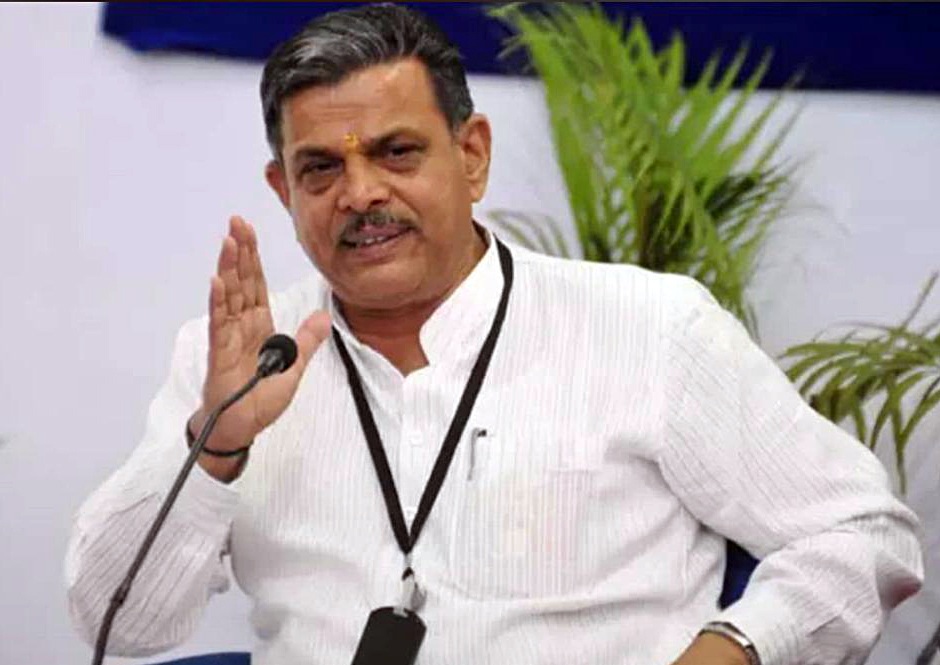New Delhi: Dattatreya Hosabale’s elevation from the post of Saha Sarkaryavaha (Joint General Secretary) to the post of Sarkaryavaha (General Secretary) of the Rashtriya Swayamsevak Sangh (RSS) means continuity in change, in order to enhance visibility, sharpness and dynamism of the 96-year-old organisation.
Hosabale’s elevation as the all-powerful executive head of the organisation also means that he will be in charge of chalking out wide-ranging programmes, both within India and abroad, to meaningfully carry out the year-long centenary celebrations of the RSS, starting on Vijayadashami 2024.
It may be recalled that Dr Keshav Baliram Hedgewar, the founder-chief of the RSS, initiated this organisation on Vijayadashami Day in 1925 in Nagpur. The RSS intends to commence year-long celebrations with multiple and multi-dimensional programmes throughout the world from Vijayadashami in 2024—celebrations that will see their culmination on Vijayadashami Day in 2025.
Explaining the rationale behind the 65-year-old Hosabale’s elevation replacing the 74-year-old Bhayyaji Joshi, S.A. Hemanth, political analyst and a senior journalist based in Bangalore said: “Dattatreya Hosabale’s reach and clout among youngsters throughout the country is profound, given the fact that he had earlier functioned as the national general secretary of the ABVP. His relationship with the national and international media is friendly and cordial. He is articulate and a polyglot as he is proficient in many languages. These factors may have worked in Hosabale’s favour.”
“Bhayyaji Joshi is no ordinary leader. His clarity of thought and handling of many crucial issues during his tenure as Sarkaryavaha was appreciated. But the need for continuity after 2025 for the next three years—which Hosabale may—might have tilted the balance in favour of this former ABVP functionary,” Hemanth reasoned.
The RSS’ next and immediate plans are to establish shakhas in 6 lakh gram panchayats across India under the “Har Gram Sampark Gram” banner, with the motto of service. Hosabale is being given the mandate to execute this plan by mobilising the ground forces of sarsanghchalaks.
Another important development in the RSS ideology which was so far inward looking is the tectonic shift when it comes to welfare and service programmes. During the recent pandemic, the Sangh collaborated with many NGOs to reach out to the poor and needy. This experience was very well received by the executive committee, which now intends to expand on several fronts.
Hosabale will come in handy in this pursuit as he has vast organisational experience from his ABVP days. He has been credited with single-handedly expanding the ABVP with capacity building for over two decades. The elevation of Hosabale also signals a process—incubate in ABVP and graduate to RSS.
Another crucial task of the Sarkaryavaha is to see that RSS’ interaction with the Bharatiya Janata Party is more professional than emotional and follows a policy of absolute non interference. “Thus-far-no-further will have to be the attitude and approach of the RSS when it comes to any Sangh-inspired organisation, but more so with the BJP, given the fact that it is the ruling political party at the Centre and in many states. It so happens that the people tend to look at the RSS when certain things go wrong in the BJP, as it usually happens. The sangh pracharaks, whose services are lent to the BJP, will have to function like the petals of a lotus, a thing apart, ready to leave any time and not develop vested interests in the position they hold in the BJP. This aspect has to be monitored by the Sarkaryavaha,” Hemanth explained.
While the Sarsanghchalak—Mohan Bhagwat—is the ideological head of the organisation and articulates the vision of the organisation, the task of the Sarkaryavaha, the executive head of the organisation, is to chalk out programmes for the next three years and also tighten the nuts and bolts of the organisation. In the decision to deploy pracharaks and karyavahas at different levels and to various Sangh-affiliated organisations, the views of the Sarkaryavaha matters a lot.
The post of Sarkaryavaha was held by Madhav Sadashiva Golwalkar, popularly known as Sri Guruji Golwalkar between 1936 and 1940 when Hedgewar was the Sarsanghachalak. Later many stalwarts have discharged this responsibility. Hosabale is the second person from Karnataka to occupy this post after late H.V. Seshadri, who held this post between 1998 and 2004.

